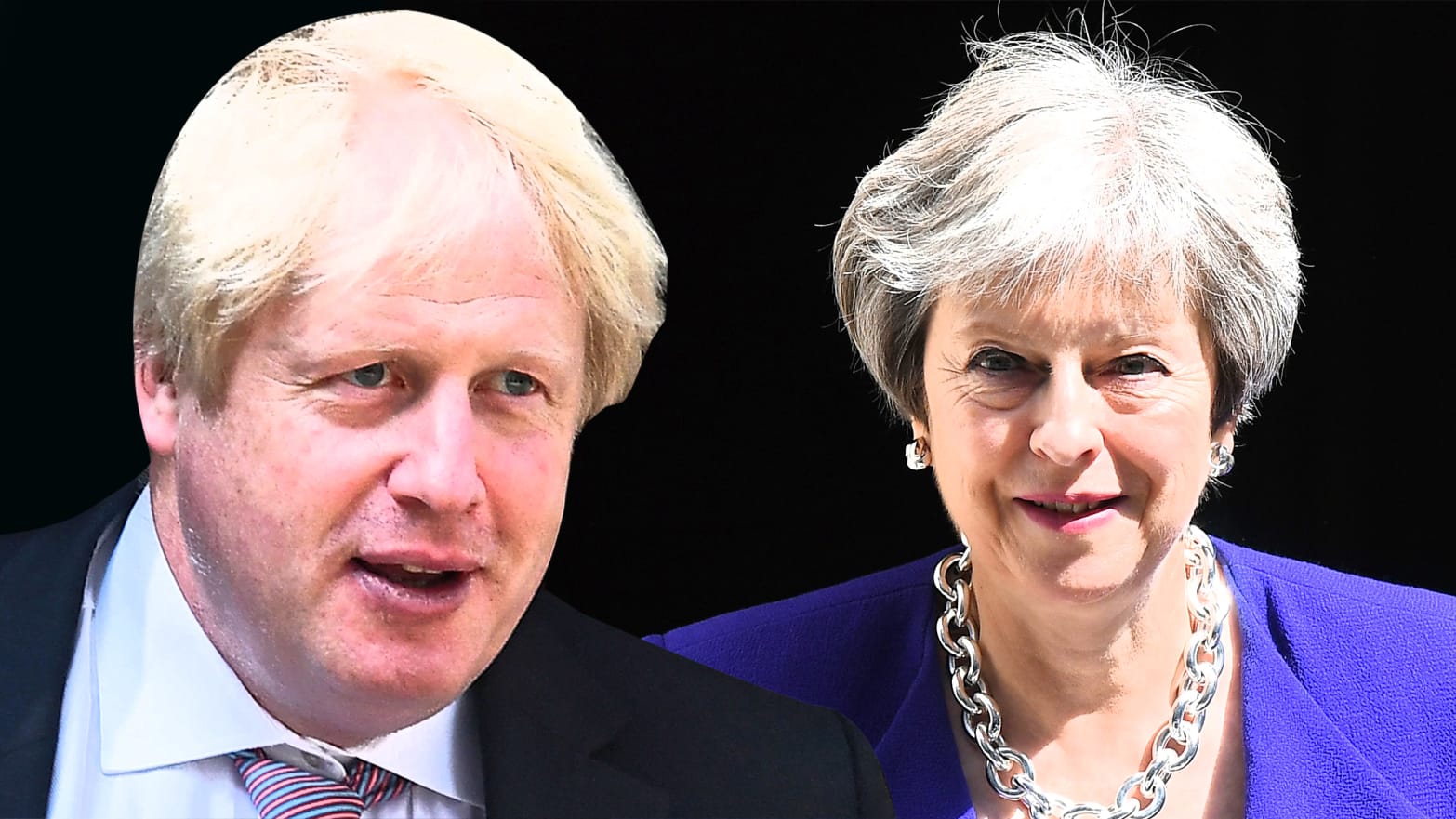Theresa May's premiership was hanging by a thread after the sensational resignation of Boris Johnson, her biggest and best-known political rival.
Johnson, who for years has been desperate to become prime minister, announced his departure from her government Monday, one day after the resignation of the country's Brexit secretary, David Davis.
A senior U.K. government source, speaking to The Daily Beast on condition of anonymity, drew comparisons with the sinking of the Titanic: "The only thing missing is a small string quartet playing Nearer My God to Thee as the iceberg slips gently into the night."
Davis quit his role of Brexit secretary—a role May created to oversee the process of leaving the EU—just before midnight Sunday. That was followed by the resignation of Foreign Secretary Johnson, who was the flamboyant public face of the Vote Leave campaign in the 2016 referendum.
The resignations are the first major blood-letting from hardline pro-Brexit lawmakers, many of whom believe May's policies—which she tried to lock-down at a meeting last Friday and many interpreted as a softer approach—will keep the country too closely-entwined with EU regulations.
Before his resignation, Johnson was reported to have said defending May's Brexit policies was like "polishing a turd."
In his resignation letter, Johnson said the Brexit "dream is dying", warned that the U.K. is "heading for the status of a colony," and added: "We appear to be heading for a semi-Brexit, with large parts of the economy still locked in the EU system, but with no U.K. control over that system."
The sensational exits leave May's government looking as weak as it has done at any point following her humiliating election result last year. In that wildly misfiring attempt to solidify her mandate for Brexit negotiations, she lost the Conservative majority won by David Cameron in 2015.
Indeed, the resignations leave May's leadership hanging by a thread. Some of her lawmakers have already said publicly that they are "100 percent ready" to trigger a contest against her.
Johnson's exit, as a talisman of the pro-Brexit side, leaves May stranded without the support of the most high profile Brexit backer. Around 80 pro-Brexit members of her party, known as the European Research Group, could now stand ready to help oust her as prime minister.
The chairman of that group, Dickensian oddball Jacob Rees-Mogg, lauded Davis for resigning, saying it was "crucially important" and hinted he'd be ready to take action against May. If Conservative members of parliament do want a leadership challenge, rules say at least 48 of them (15 per cent) must write letters supporting it—a target they could likely reach.
May is due to address the House of Commons on Brexit on Monday afternoon, where she is likely to be heckled by her own Brexiteer Members of Parliament over her new proposals. From there, this evening she'll lead a meeting of a powerful group of her own lawmakers—known as the 1922 Committee—where she's likely to encounter even greater anger.
Asked if May would face a leadership challenge following his resignation, Davis said he "hoped not," adding: "I won’t be encouraging people to do that. I think it’s the wrong thing to do."
Other Conservative lawmakers also played down talk of an imminent challenge. Member of Parliament Paul Masterton told the Daily Beast: "I don't forsee any real appetite to change leader, and to be frank, having a contest now so close to exit would be grossly self-indulgent and would not be welcomed by the electorate. People need to put the national interest before their personal, or party, interest."
But for the moment, nothing is certain—and two resignations could well be the beginning of the end of May's whimpering premiership.

